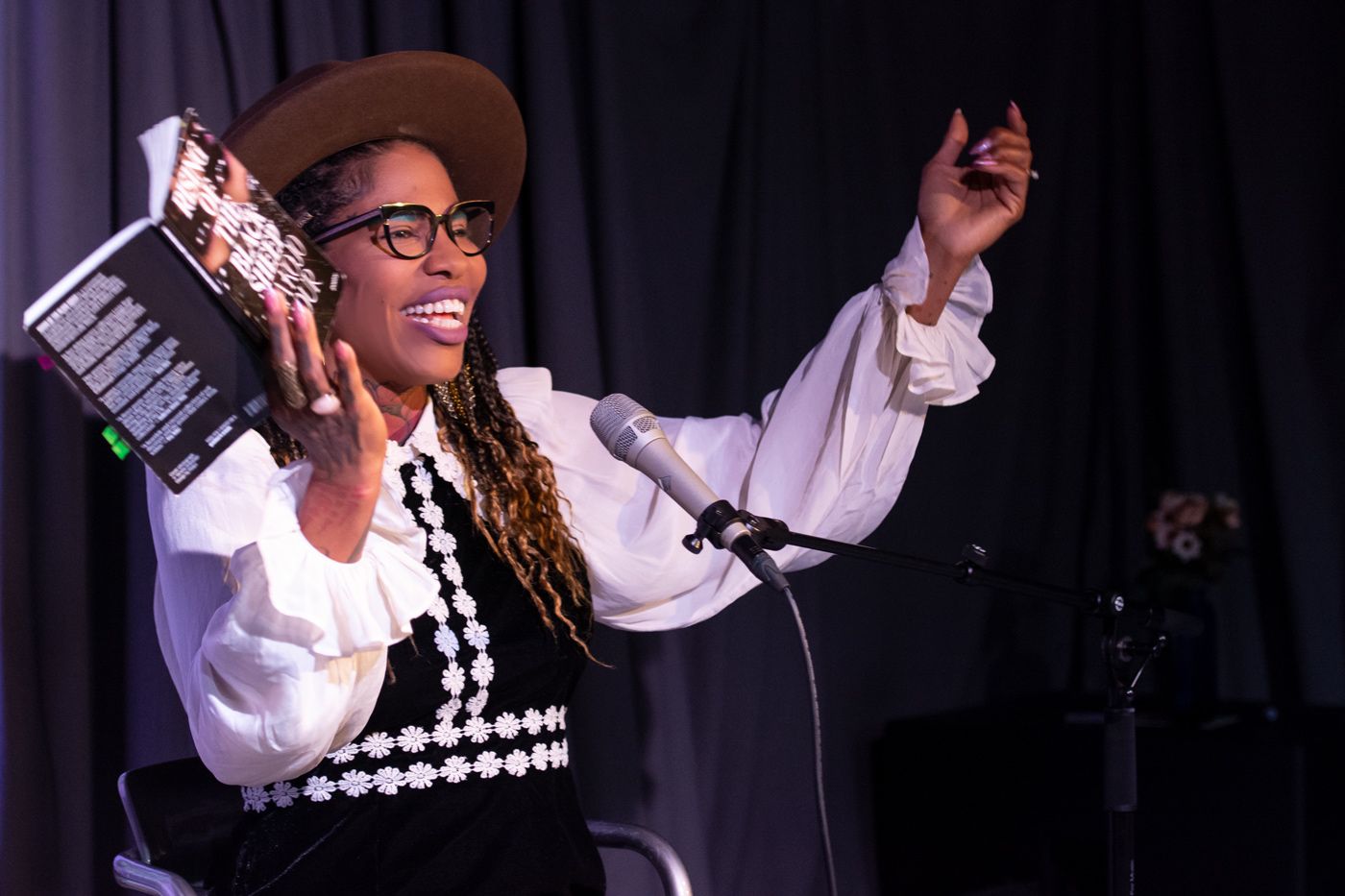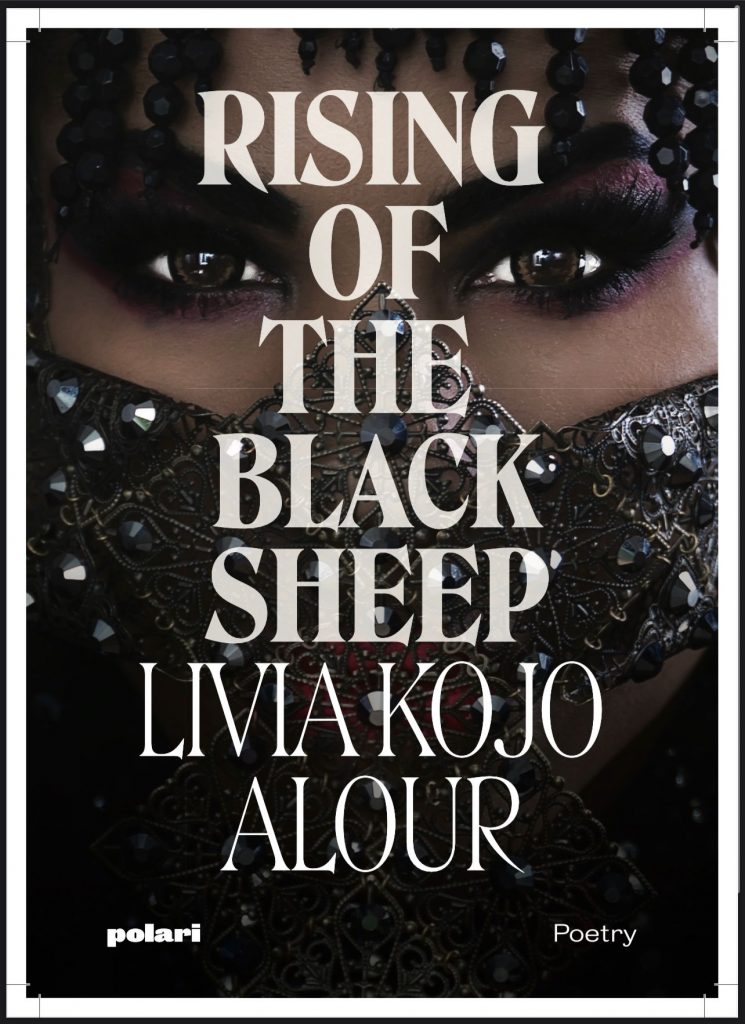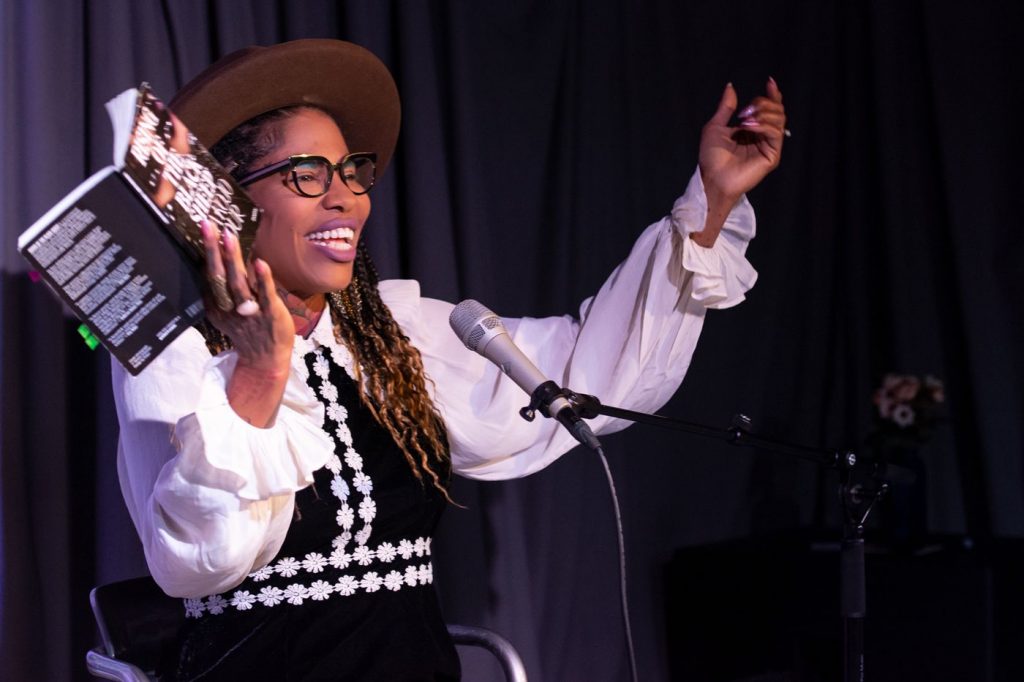Zahrah Nesbitt-Ahmed reviews Rising of the Black Sheep, by Livia Kojo Alour.
As I journey with Livia Kojo Alour in Rising of the Black Sheep, the first thought that pops in my head – this is one unapologetically Black debut poetry collection.
Rising of the Black Sheep challenges. There is anger, passion, hope, and figuring out questions of identity, belonging and love. It screams at you and demands of you, to listen carefully and pay close attention to how every word is framed and positioned.
As for Alour’s writing! It is exciting, engaging, enticing, and enraging. This is a fearless poetry collection, which I absolutely love. Alour comes across as someone unafraid to say out loud the things that need to be said about colonialism, racism, patriarchy, white privilege, and how they shape (and have shaped) the everyday lives and identity of Black womxn in the Diaspora. The writing is honest and perceptive, and in that I offer thanks and appreciation to Alour for being so open in sharing intimate parts of her life with the reader, including the struggle, pain, and endurance.
growing up wasn’t easy
life ended early
society gaslit me out
was shouting very loud
to break through to you
the result was only blame
Of course I turned aggressive
after watching you
ignoring me
that was pushed into my face
declaring me not worthy
of entering a sacred white space
for every time getting paid less
being called names
Alongside Alour’s own individual experience of oppression, Rising of the Black Sheep highlights systemic oppression and institutional racism experienced by Black people in the Diaspora. ‘Riot Poem’, for example, is dedicated to George Floyd. While many lines stick with me, a line in ‘Riot Poem’ soothed my soul, especially during times when all felt lost and there was no way out:
As long as we can run / we can run away
because I’ve believed for too long that love wasn’t made
for me. Decades of hope shattered by failure to ignite
my heart the way literature speaks of love.
The romantic dream, poets describe like walking heaven
on earth.
It scares me.
In the final section, Alour declares that enough is enough. Alour has risen and will no longer be quiet. Alour embraces hair, skin, and a Black womxn’s body (inside and outside). Alour is also saying enough is enough to racism and patriarchy, calling for solutions, for white spaces to be decolonised, claiming a seat at the table, maybe even getting rid of it entirely, because we really do need new tables.
I began reading the collection feeling it was unapologetically Black, and it is. But I should have known that by opening with the words of Audre Lorde and bell hooks, this would also be a Black queer feminist journey. It is about finding, embracing, and loving yourself unapologetically, especially as a Black womxn in a world where too often your everyday reality tries to make you believe that you are not worthy of receiving love or being loved.


